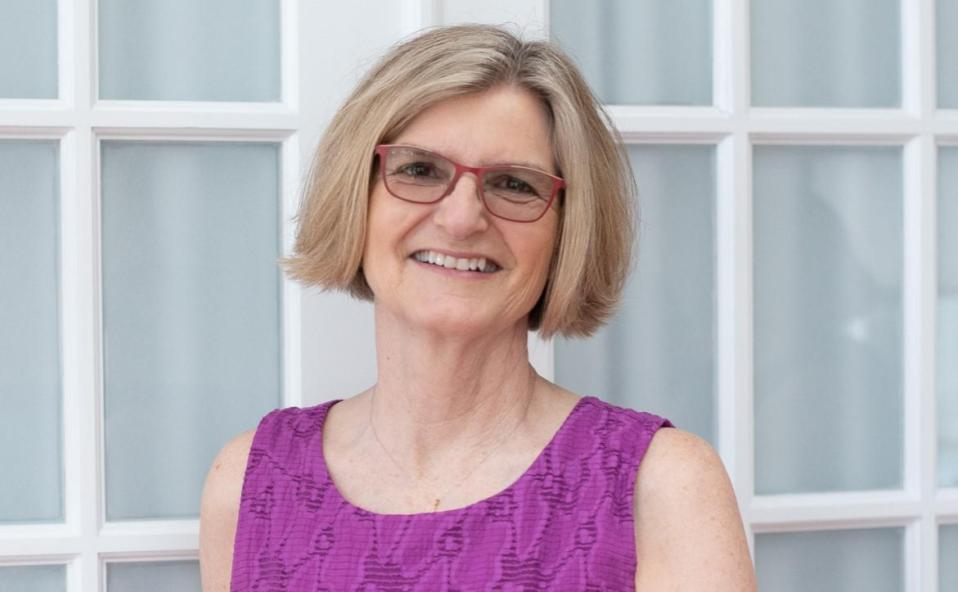
Beth Parker O’Brien, LCSW-C, MPH, Founder/Partner of Shore Neurocognitive & Behavioral Health, who will be one of the speakers at “Getting Back Out There: How to Re-Engage After the Pandemic”
According to the National Council on Aging, approximately one in 10 Americans aged 60 and older have experienced some form of elder abuse. Some estimates range as high as five million elders who are abused each year. One study estimated that only one in 24 cases of abuse are reported to authorities.
Elder abuse is defined by the Centers for Disease Control as an intentional act that causes or creates a risk of harm to an older adult, age 60 and older. Common types of elder abuse are physical abuse, sexual abuse, emotional or psychological abuse, neglect, or financial abuse.
Today, following the past few years of dealing with a COVID pandemic, more and more seniors are suffering from a lesser-known form of abuse or neglect – social isolation. In this case, family members and caregivers have an important role in recognizing the signs and symptoms to get the senior the help he or she needs.
Beth Parker O’Brien, LCSW-C, MPH, founder/partner with Shore Neurocognitive & Behavioral Health in Easton, has worked in the field of health and aging since 1980. After attending a recent conference of the International Alzheimer’s Association, O’Brien observed that many presenters shared research on the impact of social isolation on today’s seniors.
“The conference brought home that everywhere in the world, people are struggling with this issue. I’ve seen a huge difference in my own office – an exacerbation of memory problems because of social isolation. A myriad of challenges has been identified during COVID, including isolation, less physical activity, and change in access to community resources that provide services to the older adult. Many have difficulty getting to the grocery store, resulting in a poorer quality of diet. These things either individually or combined have potentially compromised the older adults’ cognitive abilities,” O’Brien comments.
Signs and symptoms to look for in a loved one who might be struggling with social isolation are:
- Increased word finding problems and increased language issues because people are not talking to other people.
- Receptive language problems, meaning their ability to understand what you’re saying – this could also be related to a hearing loss which can contribute to memory problems.
- Changes in sight – macular degeneration or glaucoma can leave a person feeling isolated.
- Mobility issues, balance, or stumbling problems because they have lost muscle strength from being sedentary.
- Weight loss indicating they may no longer be cooking meals.
- Depression or anxiety symptoms – a lack of interest in activities they used to enjoy.
- Losing some of their ability to do everyday tasks like grocery shopping, cleaning, or self-care.
- Interruption of sleeping habits.
O’Brien credits telehealth and telephone visits with helping her as a practitioner identify some of these symptoms in people who are still afraid to go out and even visit a doctor’s office due to exposure to COVID.
“Even if you don’t get your eyes on a loved one, with a telephone visit you can still listen to his or her voice and pick up the depression and anxiety,” she adds.
O’Brien offers the following tips for helping seniors avoid feeling depressed and anxious:
- Limiting the 24-hour news cycle on television and Facebook – hearing the same news over and over can affect a person’s outlook on life.
- Acknowledge loss – a person may have lost a family member, friend, a home, or a spouse – all trigger grief.
- Engage in some form of exercise – cardiac rehab or physical therapy provide both exercise and socialization.
- Engage in community activities like playing cards, knitting groups, volunteer work, or attending a senior center.
“Another thing is with depression and anxiety in the older adult, it doesn’t mean that they have a memory problem, but their memory may be affected because of the depression and anxiety. So, it’s important to get help. It’s important to talk to your primary care provider and go in organized to better utilize his/her time. The primary care provider is important, not just a gate gatekeeper, but oftentimes, they are the first contact for getting you to memory testing or other providers that help older adults.”
“An article from 2021 from the American Journal of Geriatric Psychiatry, said attachment to the community has been shown to reduce elder abuse. In the same article, it talked about during times of unrest, whether it be economic downturns, natural disasters, or something like COVID, there is an increase in interpersonal violence,” O’Brien adds.
Brookletts Place Senior Center is hosting a presentation, “Getting Back Out There: How to Re-Engage After the Pandemic,” on September 29 at 1 p.m. at Brookletts Place at 400 Brookletts Avenue in Easton. The presentation will explore elder abuse and social isolation, as well as how to re-engage seniors as a result of the pandemic. The panel of aging experts will include Dr. Maggie Black, Partner of Shore Neurocognitive Health; Beth Parker O’Brien, LCSW-C, MPH, Founder/Partner of Shore Neurocognitive & Behavioral Health; Lee Newcomb, Adult Services Social Worker, Talbot County Department of Social Services; Mary Sellers, Upper Shore Aging, Inc., Guardianship and Family Caregiver Program; Dana Newman, Talbot County Free Library; and Kate Stinton, RN, LCSW, Talbot County Health Department. For further information, call 410-822-2869 or visit https://www.brooklettsplace.org.
Brookletts Place is a center for seniors to gather and socialize with each other. It provides an aspect of community engagement for individuals 60 or older through the Center’s facilities and various events throughout the year.




Write a Letter to the Editor on this Article
We encourage readers to offer their point of view on this article by submitting the following form. Editing is sometimes necessary and is done at the discretion of the editorial staff.